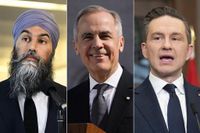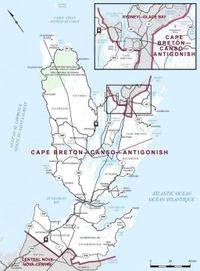As Canadians prepare for the upcoming federal election on April 28, 2025, the political landscape is charged with anticipation and uncertainty. Prime Minister Mark Carney, who took office on March 14, 2025, after Justin Trudeau's resignation, leads the Liberal Party into a contest marked by economic challenges and geopolitical tensions, particularly with the United States. The election comes at a time when relations with the U.S. are strained, especially following President Donald Trump's controversial tariffs on Canadian goods and his provocative suggestion that Canada might consider becoming the 51st state.
The major political parties, including the Liberal Party, the Conservative Party, and the New Democratic Party (NDP), have unveiled their platforms as they seek to capture the electorate's support. Carney's Liberals have committed to significant military and infrastructure investments, including expanding the Canadian Armed Forces' operations in the Arctic and committing $253 million to Indigenous reconciliation programs in the North. They also plan to allocate $187 million for repairing infrastructure in Jasper National Park, aiming to bolster both national security and environmental stewardship.
On economic issues, the Liberals have decided against a planned increase in capital gains tax and are providing immediate relief to workers affected by U.S. tariffs by removing the one-week waiting period for employment insurance benefits. Additionally, businesses will receive temporary deferrals on income tax and GST payments, signaling a focus on economic recovery in light of recent challenges.
Meanwhile, the Conservative Party, under the leadership of Pierre Poilievre, has framed its campaign around reducing crime, lowering taxes, and addressing housing affordability. Their proposals include mandatory sentences for major crimes and significant tax relief measures, such as allowing Canadians to contribute an additional $5,000 annually to tax-free savings accounts if invested in Canadian companies. The Conservatives also plan to eliminate GST on new homes costing up to $1.3 million, a move aimed at making housing more accessible.
Poilievre's party has committed to maintaining the retirement age at 65 while allowing working seniors to earn up to $34,000 a year without paying income tax. They also propose to extend the RRSP withdrawal deadline from age 71 to 73, which could provide additional financial flexibility for retirees.
The NDP, led by Jagmeet Singh, has centered its campaign on housing affordability and economic fairness. Their strategy includes banning corporations from purchasing affordable rental properties and expanding the rental protection fund to help non-profits acquire affordable housing units. The NDP has pledged $1 billion over five years to secure public land for affordable housing and aims to train 100,000 workers in skilled trades, reflecting a commitment to job creation and economic stability.
As the election approaches, polling data reveals a shifting political landscape. A recent National Post article by Tristen Hopper noted an increase in support for Carney among older voters, a demographic that traditionally leaned Conservative. This shift could indicate a changing tide in Canadian politics, as younger voters seem to be gravitating towards the Conservative platform, while seniors are increasingly supporting the Liberals.
In the Prince George – Peace River – Northern Rockies riding, where Conservative incumbent Bob Zimmer is running against candidates from the NDP, the People’s Party of Canada, and the Green Party, the author predicts a Conservative victory. The sentiment in this region reflects a broader belief in fiscal responsibility, crime reduction, and economic growth, which many voters feel the current Liberal government has failed to deliver.
Polling aggregator 338Canada, created by Philippe Fournier, has provided insights into the electoral landscape, with its model successfully predicting the winners in 89.3 percent of the electoral districts projected. As the election draws nearer, the accuracy of these polls will be closely scrutinized by both parties and the electorate.
In Cape Breton, voters are gearing up for their third trip to the polls in six months, with two MPs vying for representation in a House of Commons that will seat 343 members. The redistricting of constituencies has created competition between incumbent MPs Mike Kelloway and Jaimie Battiste, both of whom are seeking to represent Sydney-Glace Bay. This contest has sparked interest within the Liberal Party, as both candidates believe they can draw significant support in this newly defined riding.
The election campaign has highlighted three key factors: the Liberal Party's shift to the political center under Carney, the Conservative Party's struggle to connect with voters, and the erosion of support for the NDP and Bloc Quebecois, which appears to be benefiting the Liberals. As the campaign progresses, the dynamics of voter sentiment may continue to evolve, influenced by regional issues and the broader national narrative.
With just weeks to go before Canadians cast their ballots, the political landscape remains fluid, and the stakes are high for all parties involved. Voter turnout and engagement will be crucial in determining the outcome of this pivotal election, as Canadians navigate the complexities of their democratic rights amidst a backdrop of economic uncertainty and political realignment.
As Canadians prepare to head to the polls, the importance of voter registration cannot be understated. Elections Canada has made it easier for voters to register online, by phone, or in person at local offices. Voters are encouraged to check their registration status and ensure they have the necessary identification to cast their ballots on election day or during advance polling days.
In a rapidly changing political environment, the upcoming federal election is set to be a defining moment for Canada, with implications that will resonate for years to come. Whether voters choose to maintain the status quo or embrace a new direction will ultimately shape the future of the nation.







